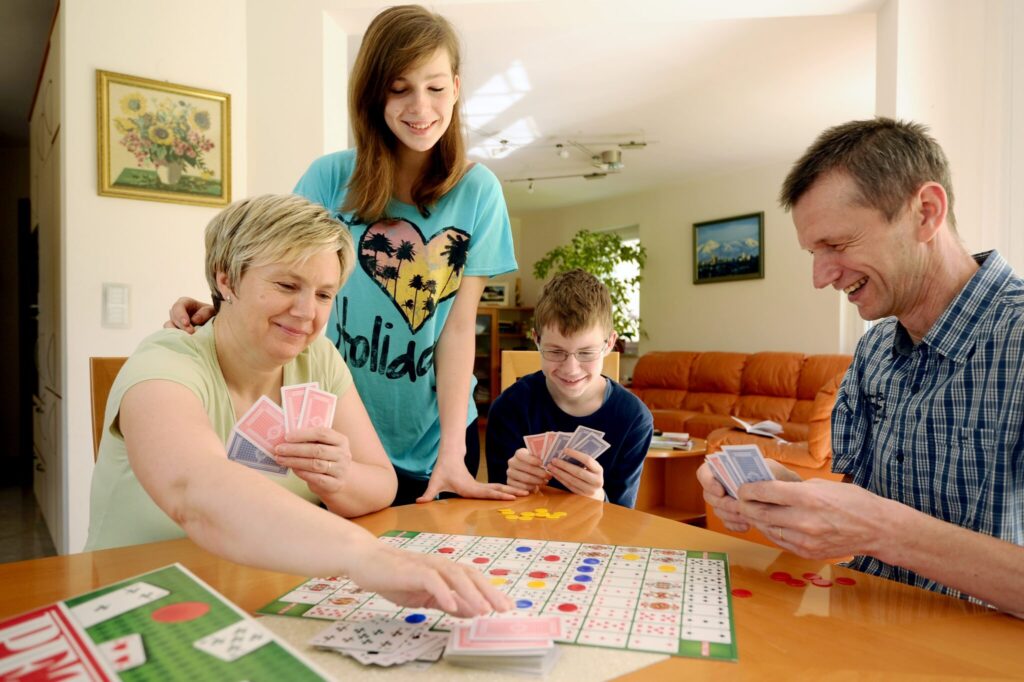Family is the primary environment, in which it is necessary to ensure that an individual can grow and develop without disturbances, gain positive experiences and values, and learn to accept responsibility for his or her own actions and freedom. With all of this, an individual can then have a positive impact on the development of society. “The stronger the Slovenian family, the more favourable will Slovenia become for the family, and the better our future and the future of the Slovenian nation,” the SDS party wrote.
The traditional Slovenian family is the central cell of our living, so we must ensure sufficient financial incentives for it, and encourage young people to decide to start their own families. In order for the family to be able to act as a buffer against social upheavals, it needs help in ensuring its autonomy, economic independence, privacy and security. The family must also be a community of equal and democratic relations among its members, with the children’s interests being the most important guide, which is one of the reasons why certain additional solidarity allowances for the families have been adopted in the seventh anti-corona legislative package.
And thus, from the 1st of September, kindergarten will once again be free for all children. The MPs confirmed the government’s proposal for kindergarten to be free for the second child if two children from the same family are enrolled in the same kindergarten at the same time. The same applies to the rest of the children from the same family, regardless of how many of the children from the family are enrolled in kindergarten. The MPs also adopted an order, prohibiting the provision of pre-school education and childcare to all legal and natural persons who are not entered in the register of providers of publicly valid education and training programmes or in the register of guardians of pre-school children. With this, the government wants to eliminate the shortcomings of the law, which became apparent with the terrible irregularities in Ljubljana’s private kindergarten Kengurujčki (Kangaroos).
In addition, the seventh anti-corona legislative package also includes a one-off solidarity allowance for all children. The allowance will be received by one of the parents or foster parents of children younger than 18 years old, with permanent or temporary residence in Slovenia, who actually live in Slovenia. The childcare allowance will also be increased by 100 euros. The budget for higher allowances for October, November and December 2020, in the amount of 300 euros, has been revised before the 31st of January 2021.
However, from January 2021 onwards, the amount of childcare allowance will be higher until the end of the epidemic. The annual allowance for large families with three children has also increased by 100 euros, and the allowance for large families with four or more children has increased by 200 euros. One of the parents or adoptive parents of the children with permanent residence in Slovenia, born between the 1st of January 2020 and the end of the epidemic, will also receive a one-time solidarity allowance for newborns, in the amount of 500 euros.
The government has also adopted two important acts
The government has adopted the Parental Protection and Family Benefits Act. This Act has been amended, in order to eliminate the inappropriate and unfair legal regulation in the event of the employed parent exercising their right under Article 50 of this Act – the right to work part-time in order to care for their child.
The change also equated the amount of paid social security contributions for part-time workers, who are exercising their right to part-time work in order to take care of their child, with those workers who are not exercising this right, which thus eliminates the unequal position of part-time workers.
The government also passed the Act on the Intervention for Children and Youth with Emotional and Behavioural disorders in Education. The Act defines the return of a child or adolescent to normal life, their return home and further education or work, and provides for a possible adjustment period that an adolescent can spend in a youth apartment, where he or she can live for a maximum of 12 months after graduation, or until he or she is 26 years old.
Sara Bertoncelj


